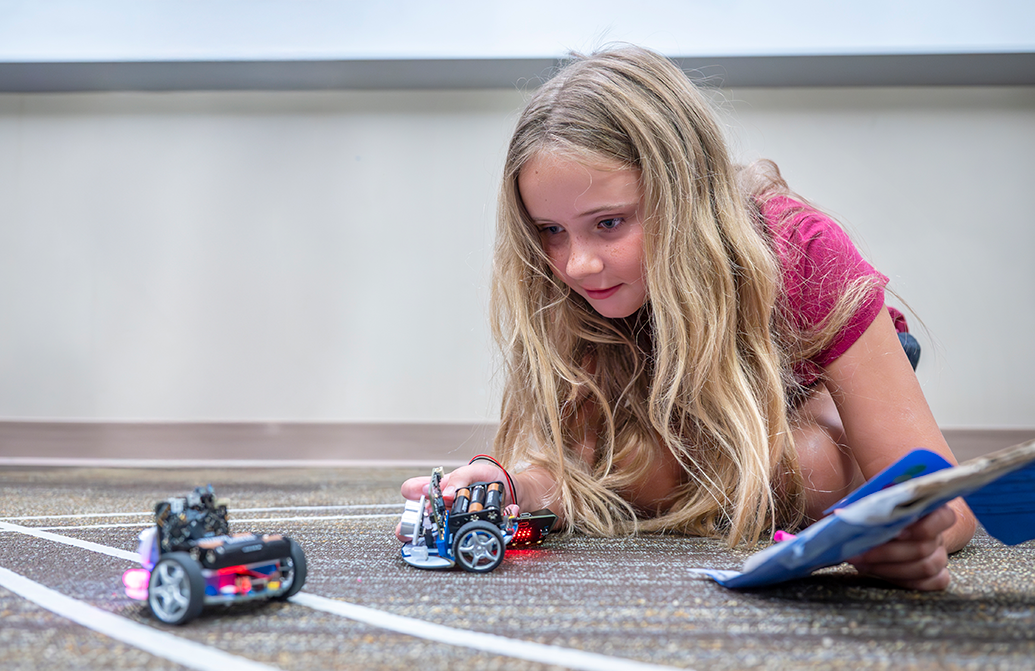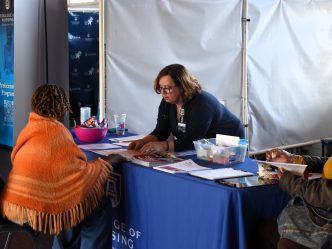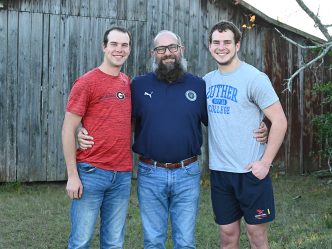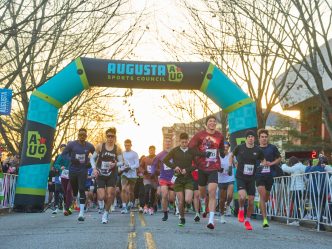With more than 400,000 jobs available in the lucrative cybersecurity field, Augusta University’s School of Computer and Cyber Sciences is cultivating passions early among school-age students through the VICEROY Kids Camp.
“We’re introducing fourth through eighth grade kids to computer science, programming and cybersecurity,” said Michael Nowatkowski, PhD, director of the school’s Cyber Institute and a professor at SCCS. “We’re trying to make them aware of staying safe online and the different careers that are available to them related to programming and computer science.
“When they’re starting this young, it starts to give them awareness of what programming is,” he continued. “They learn to think more logically, how to interact with the computer to be able to give instructions so that it can understand what they’re trying to accomplish.”
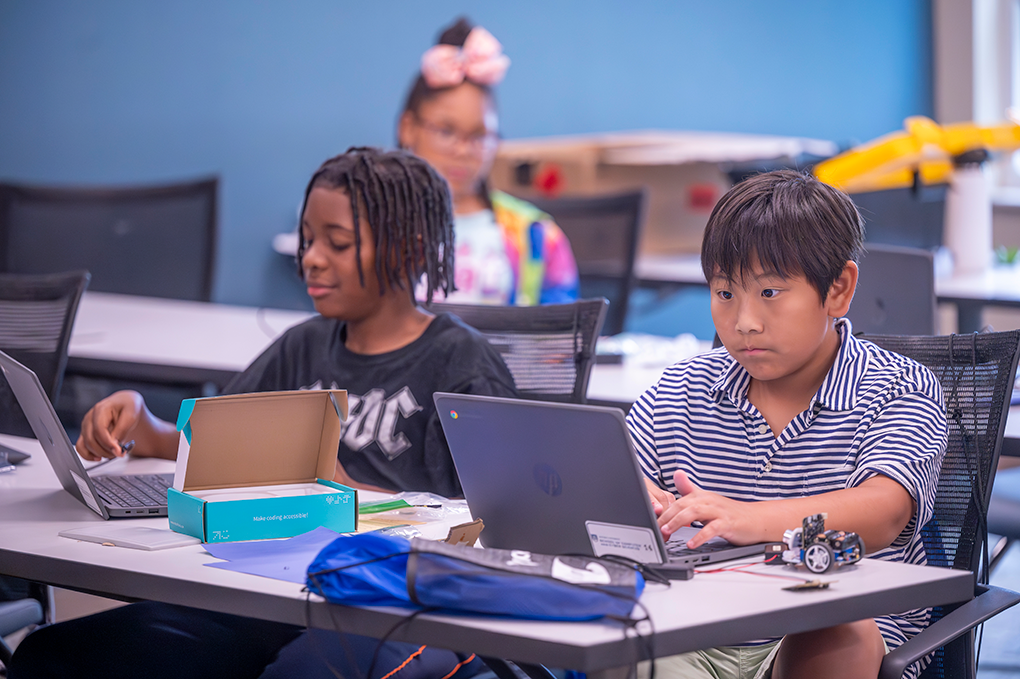
The summer camp, now in its fourth year, isn’t just a means to set kids up for future success; it’s also a way to hopefully address a pressing need with today’s ever-changing cyber landscape.
“I think artificial intelligence will make it much more challenging to defend against attacks because AI will help the attackers come up with new ways to attack and stay hidden. And so that’s another tenant that hopefully they’ll learn more about so that they know what to look for,” Nowatkowski said.
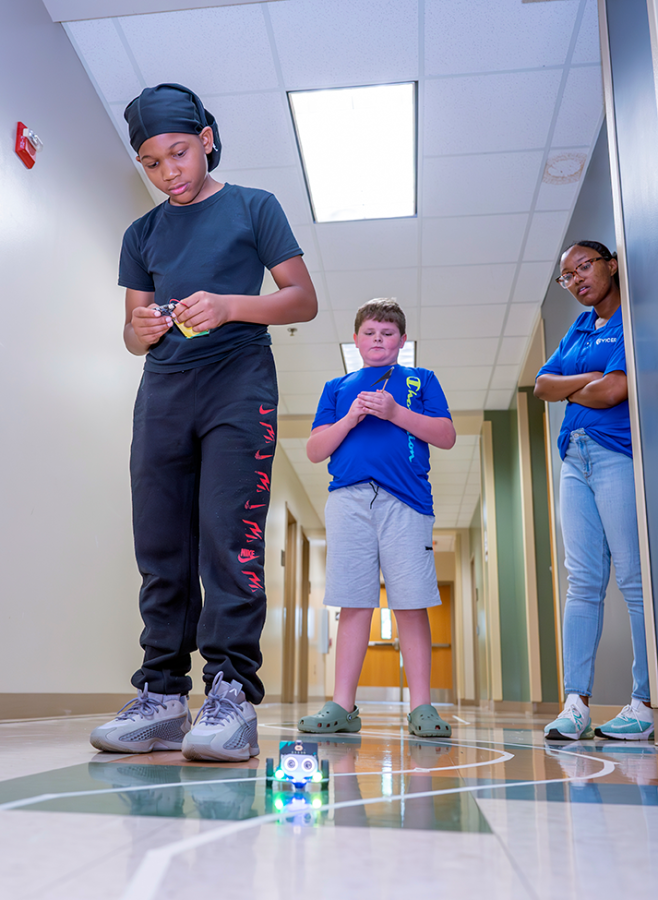
VICEROY, which stands for Virtual Institutes for Cyber and Electromagnetic Spectrum Research and Employ, is a Department of Defense award granted to select schools around the country to bring awareness to cybersecurity careers in the department.
Over the course of a week, 50 students from around the CSRA gathered at University Hall to take part in fun activities like computing scavenger hunts and robotic car races. After the students were paired in teams of two, they were tasked with using MakeCode and Python programs to code the microbits connected to their miniature robot cars.
They were then able to test drive their cars on practice race courses created by AU students working as classroom assistants. On the final day of camp, the teams with the best times competed for glory in the challenging and prestigious Grand Prix Race.
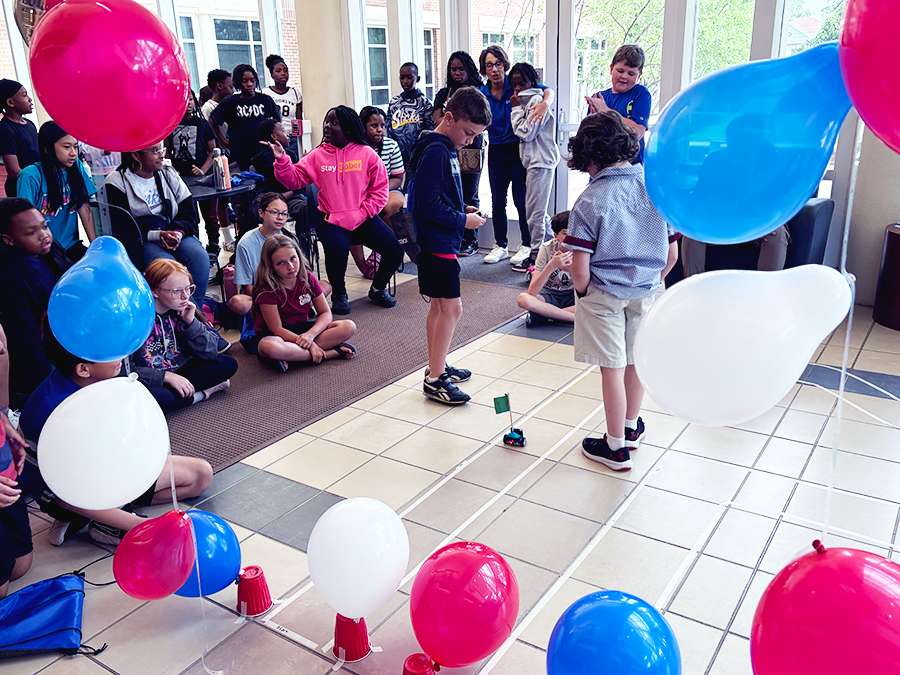
Sixth-grader Carson Mimms and seventh-grader Khloe Bowdre made up one of the teams and were a crowd favorite, based on all the cheers they received from their fellow campers when it was their time to go. Their team name was “It’s Okay, We Won.”
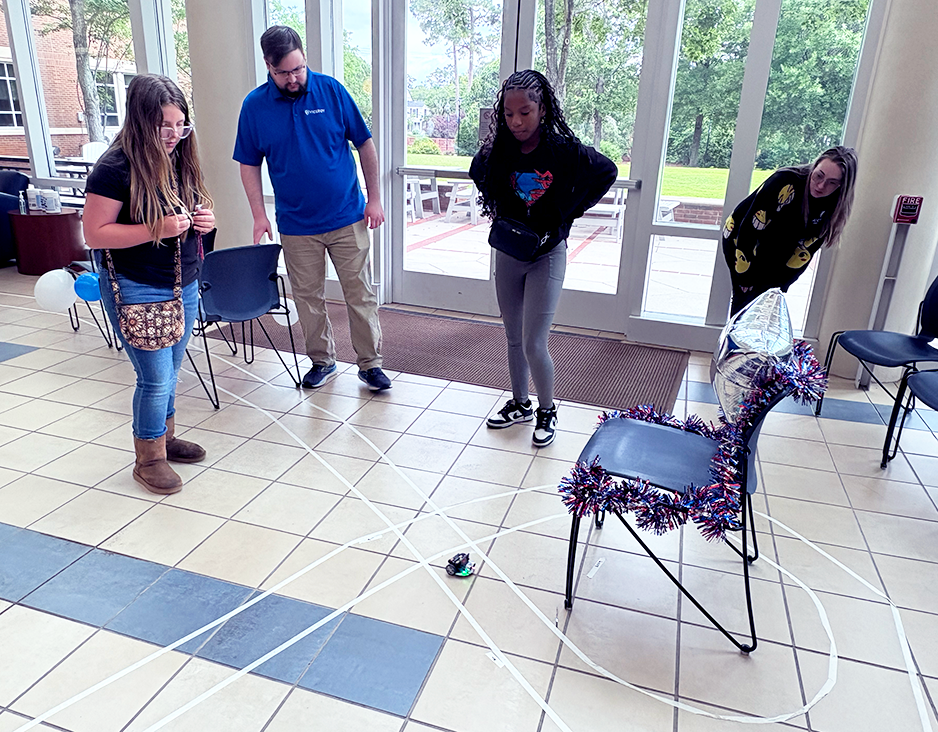
“It went kind of bad, kind of good. We should have gone a little bit slower, though,” Mimms said.
“I think it went well. I think we should have stuck with the turns we had at first, so we could go slow instead of going with the automatic turns,” Bowdre said.
It was Mimms’ first year of cyber camp, and she loved every second of it. Bowdre, who attended a similar camp last year, said her interest in the challenging subject continues to grow.
“I like how it’s not easy at all. You have to really think about how to do it,” she said. “It’s nothing that’s just going to come straight to your head. You have to really do the work to find the answers.”
For some of the younger kids, the camp was a gentle introduction to the framework of the technology they use in their everyday lives.
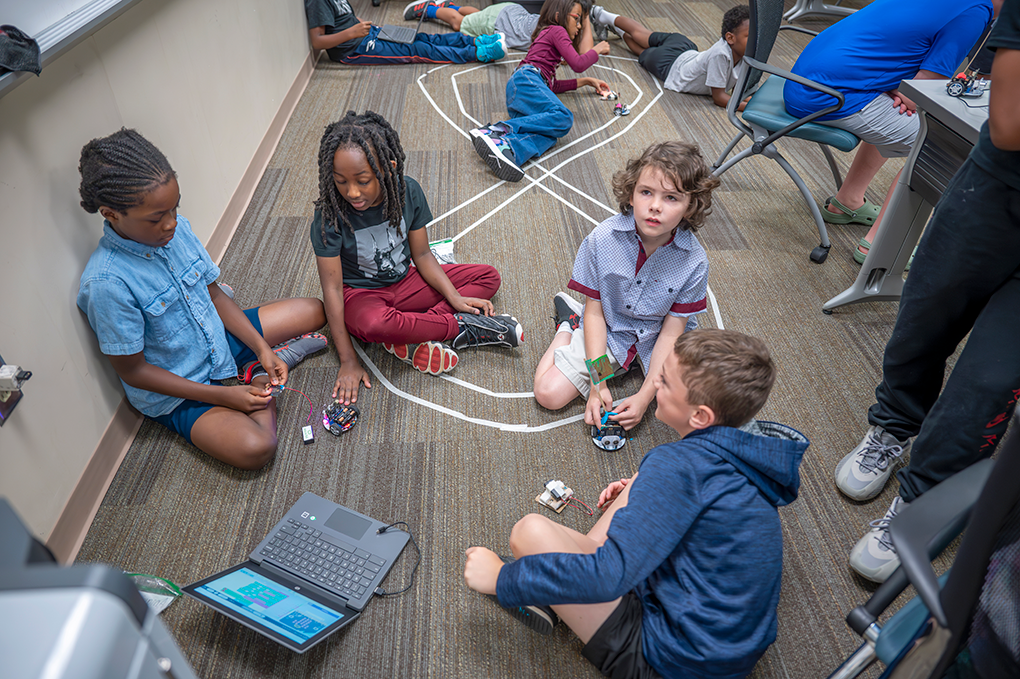
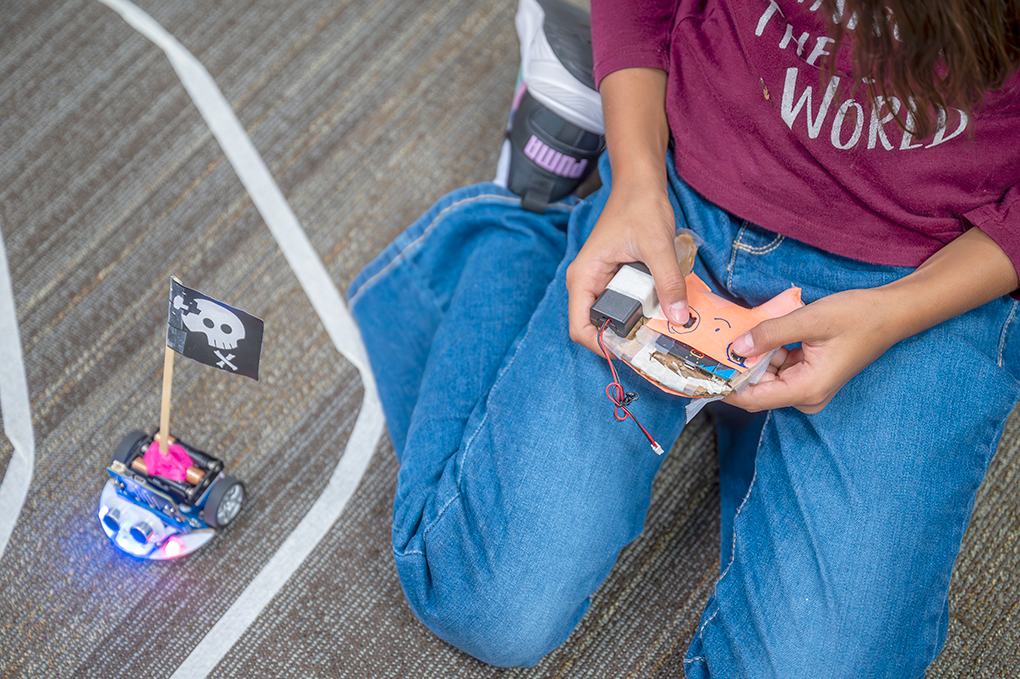
“I think it was really fun learning new computer stuff and doing the race,” said fourth-grader Reese Howard. “This isn’t my first time with a robot because I have a robot at home that’s supposed to help you if you have trouble reading or doing math stuff. But as far as coding and stuff like that, this is my first time.”
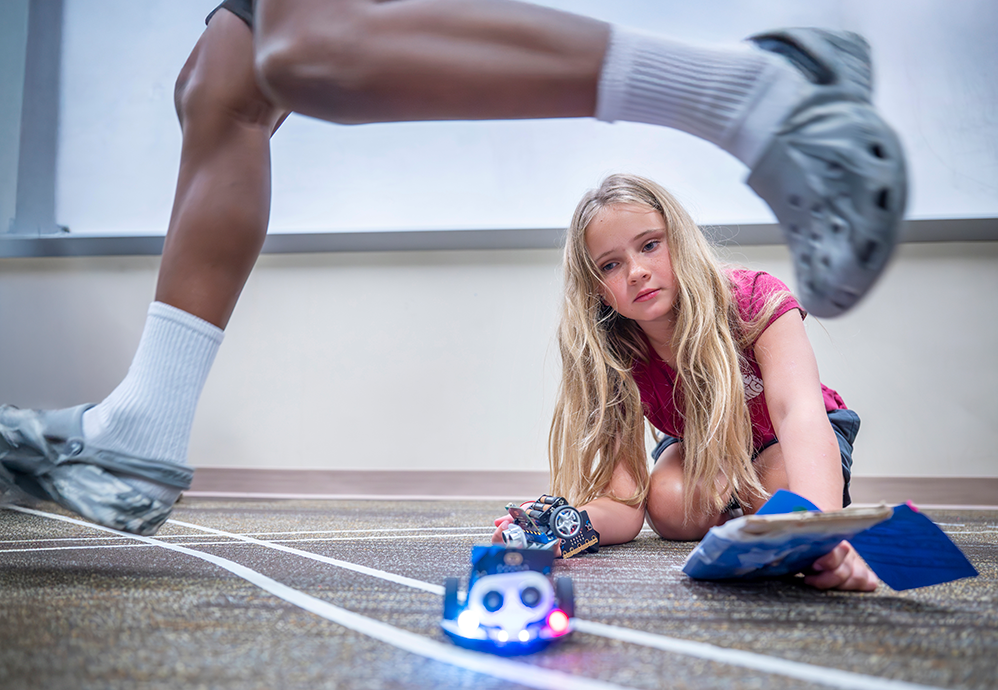
The camp gave them a glimpse into what their future careers could look like.
“I want to make robots and stuff and put them in stores for people to buy them,” said fourth-grader Alyssa Washington.
Augusta University student volunteers were tasked with setting up the race tracks and helping the kids with their microbits, robots and coding programs. It was gratifying for them to work with and inspire children who remind them of a younger version of themselves.
“The most fulfilling part for me is seeing the students overcome the challenges. They’re getting frustrated, they don’t know exactly what’s going on yet, but we’re giving them pieces that they need to understand what’s going on, so that when they do figure it out, they’re screaming and they’re jumping up and down,” said Brianna Campbell, a double Jag. “Hopefully that continues to give them an interest in computer science and cybersecurity.”
Campbell recently graduated from the School of Computer and Cyber Sciences with a Master of Science degree in Information Security Management after earning her undergraduate degree in cybersecurity from AU.
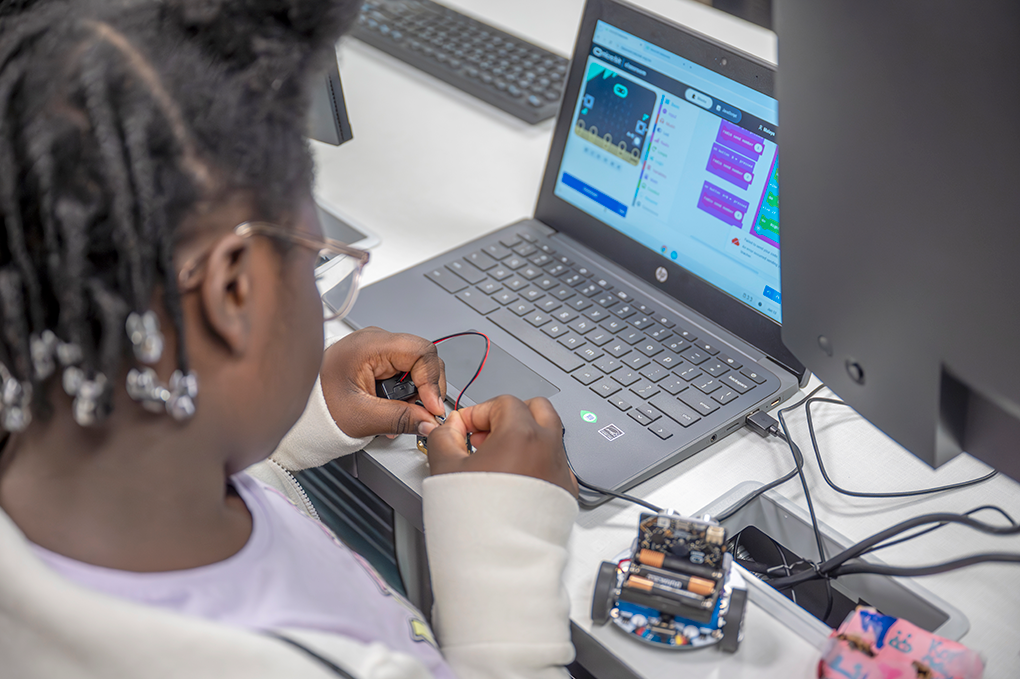
“Something that originally got me interested in cybersecurity was seeing all the bad things happening with technology – people not using it right or just things that were happening that should not have been happening,” Campbell said. “I saw that there was much more out there that could be done with cybersecurity and computer science.
“I think this is super important for the kids because when we first started the camp, we taught them computer safety because there is so much AI and social networking, we want to make sure the kids are safe,” she continued. “We want to teach them all the cool parts about cybersecurity and computer science, but we need to make sure they’re also safe on the internet.”
SCCS and the Georgia Cyber Innovation and Training Center also host other summer camps and after-school clubs for K-12 students such as CodeHoppers, GenCyber and CyberPatriot – each aimed to address a specific element of cybersecurity.
“We’ve sponsored several camps related to computing and cybersecurity at Augusta University going back as far as 2016, so we’re very interested in building the pipeline for kids to get interested in learning about computing and cybersecurity,” Nowatkowski said. “By making them more aware of it early on, we hope that when they get to college, they’ll select into those majors.”
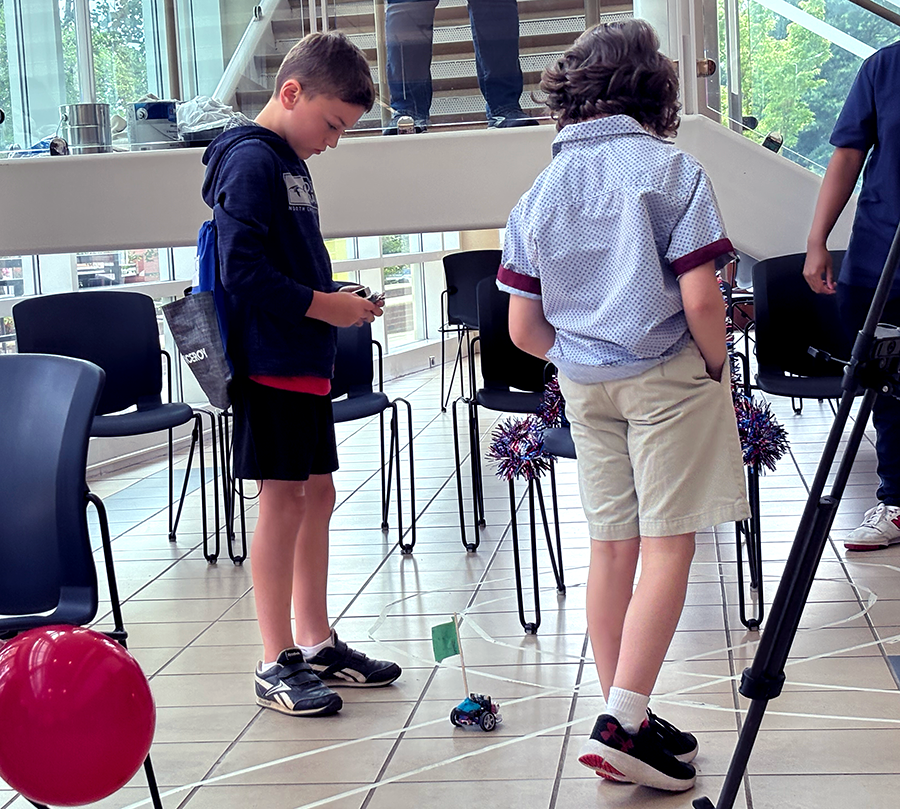
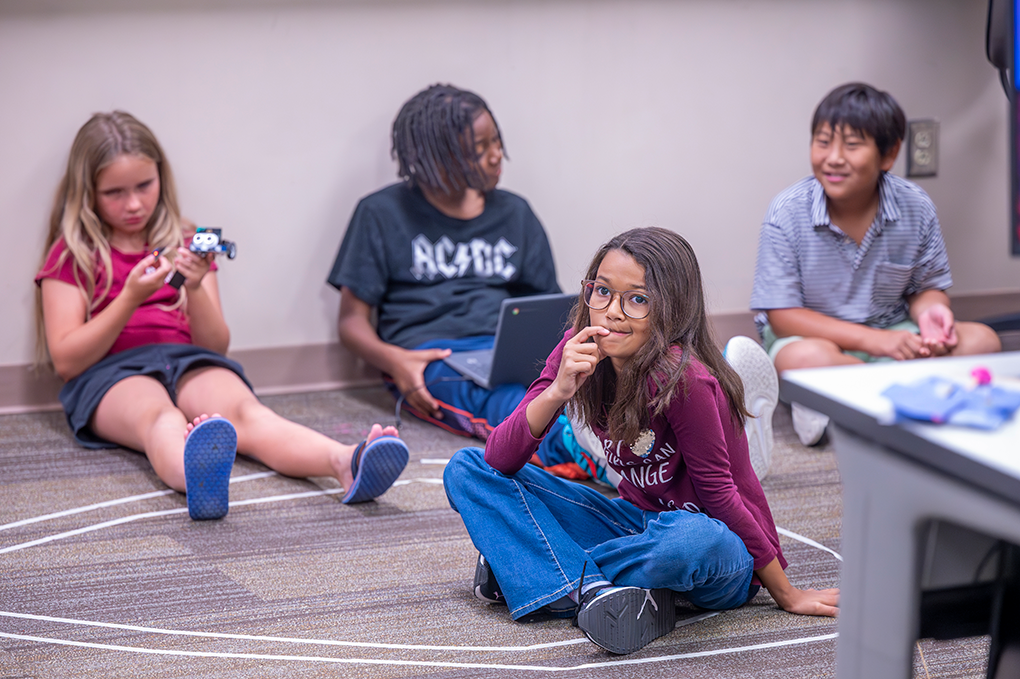
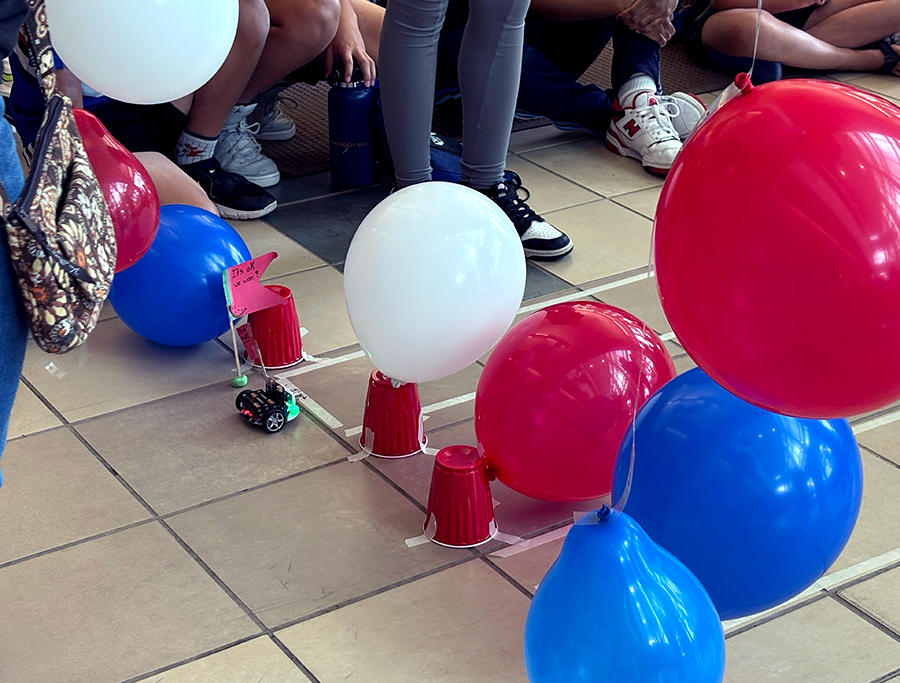
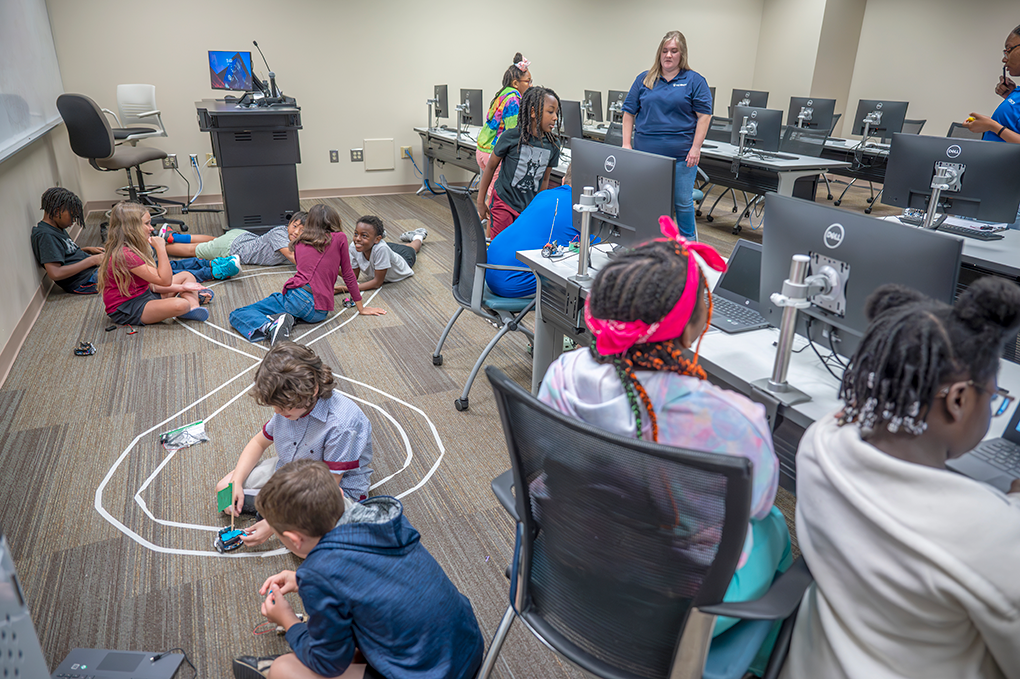
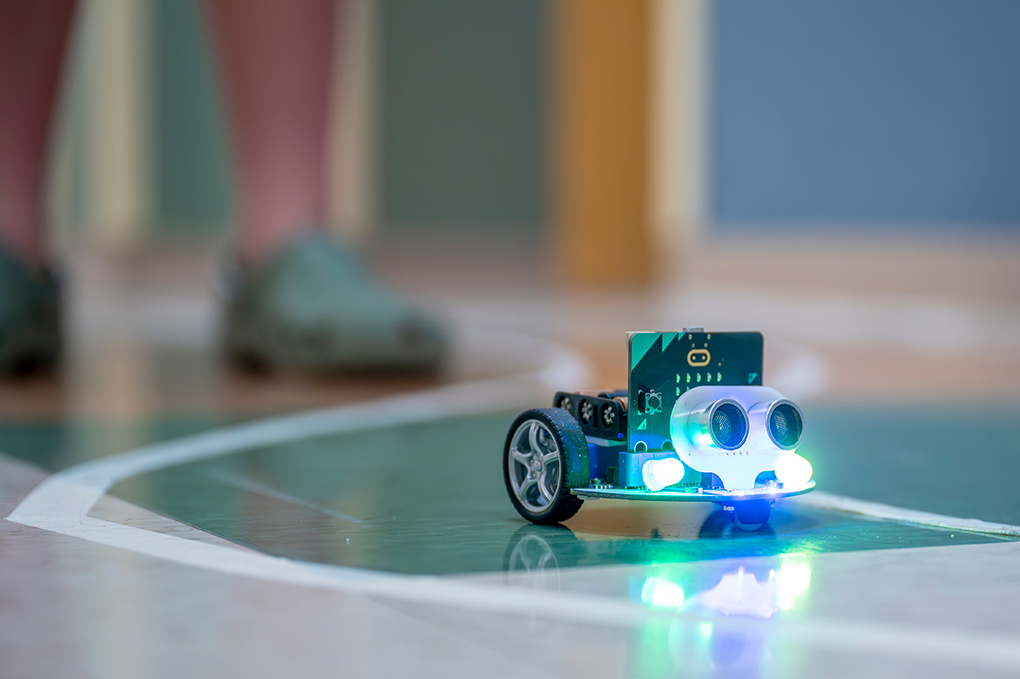
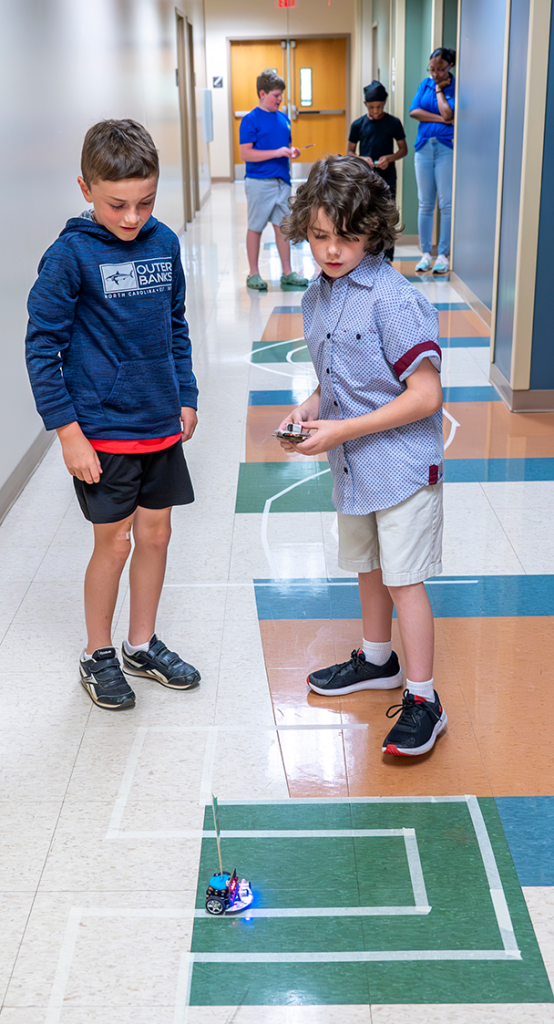
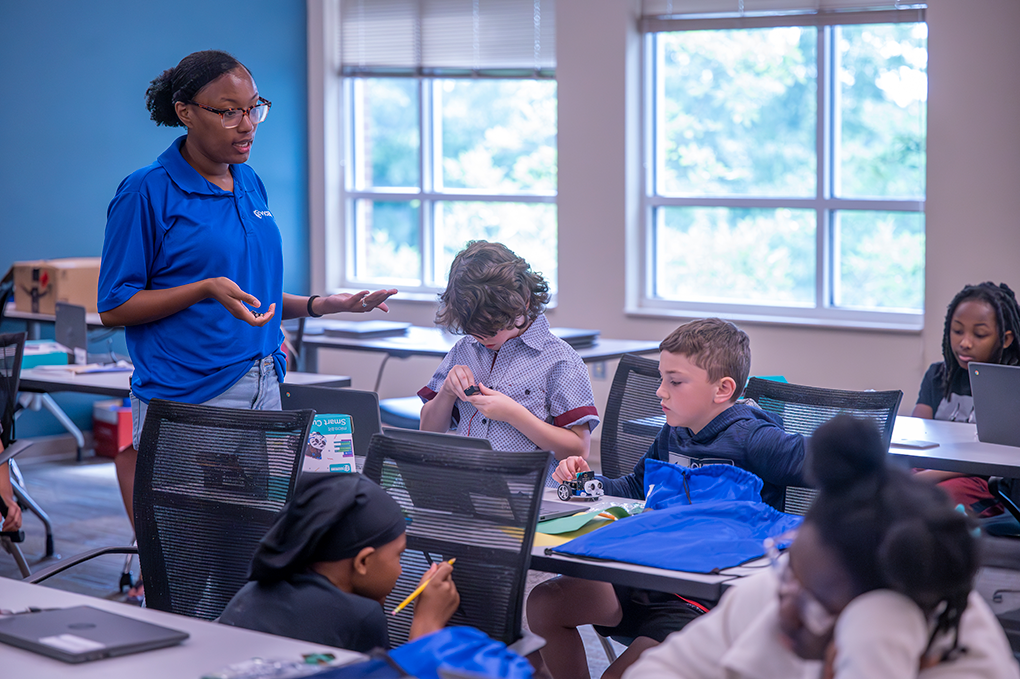
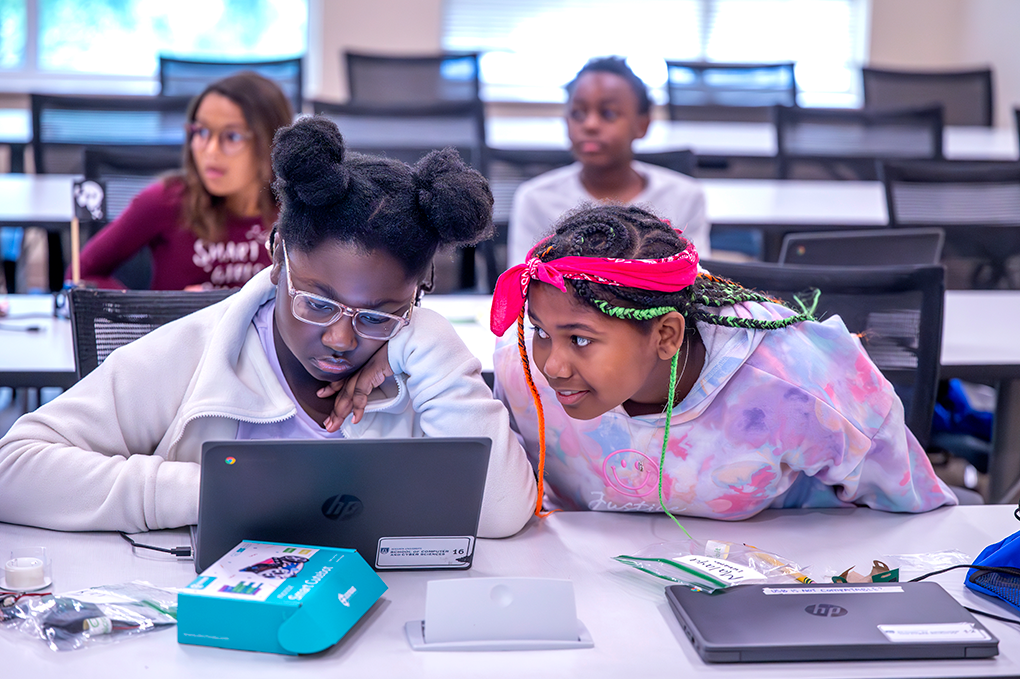
 Augusta University
Augusta University
